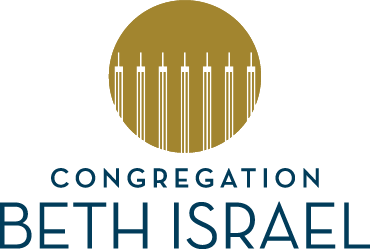“Always Planting”

“Always Planting”
From the desk of Rabbi David Lyon
This past week, we observed International Holocaust Remembrance Day and Tu B’shvat. International Holocaust Remembrance Day also marked the 76th anniversary of the liberation of Auschwitz. Years have passed but the indelible memories and hard lessons endure. The observance of Tu B’shvat, Jewish Arbor Day, as it’s often called, is a hopeful holiday. Observances include planting trees in Israel and at home, and eating Israeli fruits and produce.
The two dates, one of bitter loss and the other of inspiring hope, recall the Talmudic story of the old man who was bent over a small fruit tree he was planting in the ground. He was approached by a passerby who said to him, “Old man, come and greet the Messiah!” The old man said, “I’m planting a fruit tree.” “A fruit tree!” said the passerby, “You won’t live long enough to eat its fruit. Come, the Messiah is waiting.” The old man said once more, “Let me finish planting the fruit tree and then I’ll greet the Messiah.”
Ask yourself, what you would have done? Would you have finished planting the tree or would you have left it to go greet the Messiah?
The point of the story is about our hope for a better future, and if not for us then most certainly for our children. You see, the old man is eventually each one of us. We plant and harvest all through our life. It’s what we do. We sow seeds of good works and we harvest dividends to support our households and our communities. And, quicker than we imagined, we grow old, too; but we still plant for the future. It’s what we do, even if the fruit is something only our children and grandchildren will enjoy.
But, what about the Messiah? Can we turn our back on the Messiah? The story comes from the Talmud, which itself was concluded about the 6th century CE. The hope for Messiah which had always been part of ancient Jewish thought was now integral to an emerging Christianity, too. Jews and Christians debated the hope for Messiah. The Talmud story, perhaps a polemic against Christian ideas about Messiah, affirms for Jews what they needed to know then and now. For Jews, Messiah would come for the first time under very different circumstances. Announced by the prophet Elijah, the Messiah would be a descendant of David.
What’s more, in the 19th century, Reform Judaism set aside the notion of such a personal Messiah. Emerging from the Enlightenment, Reform Judaism embraced the possibility of a Messianic Age; it would be a time, not a person. Rather than a messianic figure, a messianic age would be built by all of us through mitzvot that transformed our world into a place of justice and peace. Rather than wait for a messiah, we can get on with the work of a better day. That’s why the old man, bent over the fruit tree, finished planting and then greeted the messiah. Many false messiahs had appeared before. His first obligation was to plant the tree for his people’s future. If it were not the Messiah, as he presumed it would not be, then he wouldn’t have failed to keep his obligation to plant for his children. If it were the Messiah, the Messiah would surely still be there even after he planted the tree.
Ever since, Jews have been planting trees, literally and figuratively. If we work towards transforming the world into what it ought to be, then the Messiah might well arrive after the Messiah is needed. This Shabbat, when we rise for Kaddish, think about the men and women in history and those in our lifetimes who stood up and worked hard for the cause of a better world; and think about those who perished in their pursuit of such aims. I’d like to believe that they planted seeds of hope for the same reasons we plant ours. “Never Again!” are words for our time and all times. Let’s translate these words into actions. Let’s sow seeds of peace.
![]()
